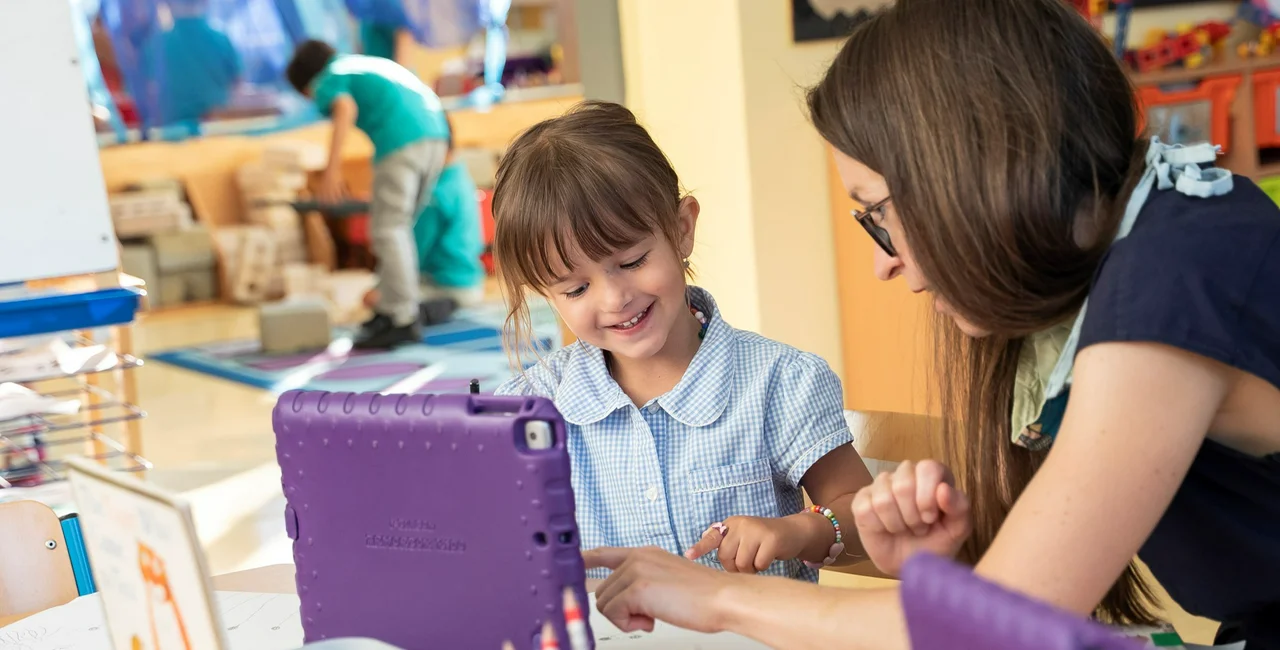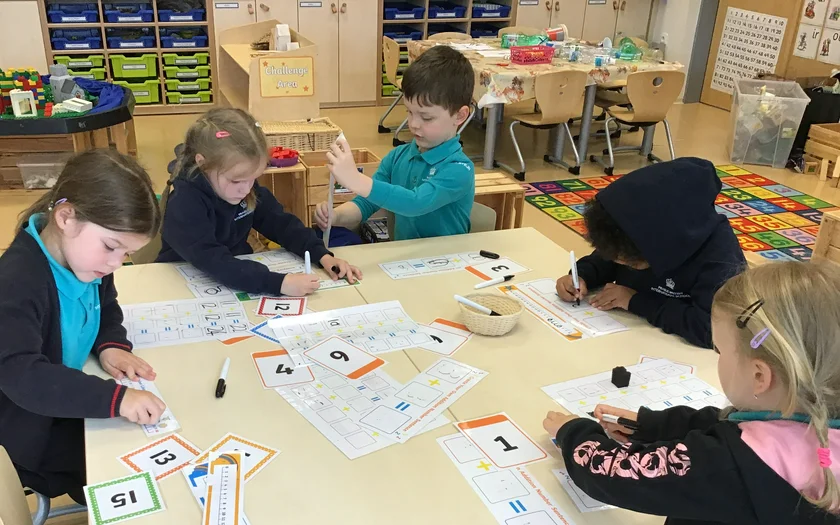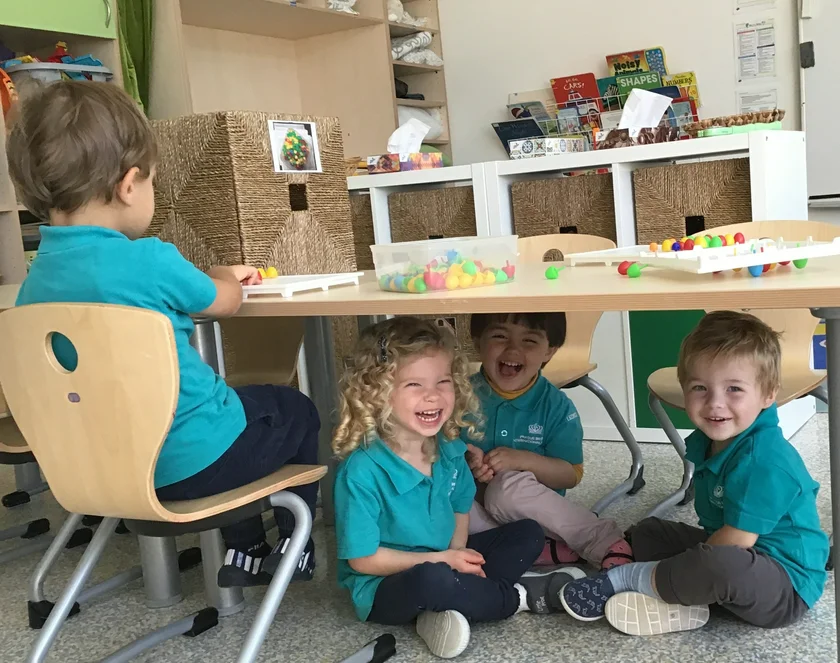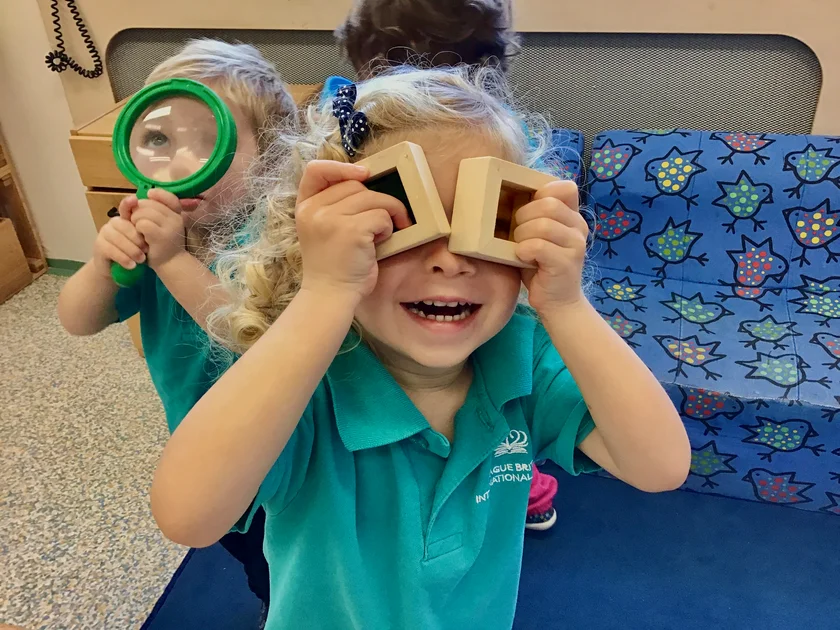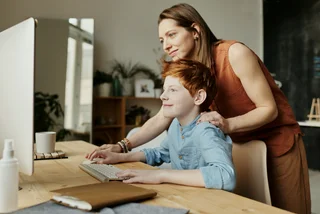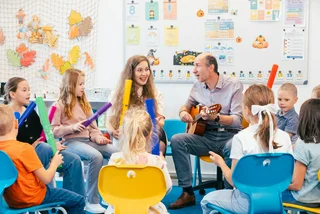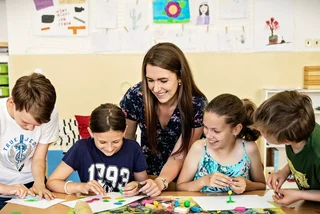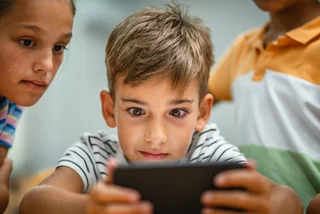This summer will mark an important life-stage for many families in Prague, as in just a few short weeks’ time, many children will begin their journey through the formal education system. Starting school is an exciting time for parents and children alike, and we spoke to Alex Harrison and Carolyn Gorham, two teachers who specialize in Early Years education at the Prague British International School, who shared their insights and gave tips for helping children to make this important transition.
There are several types of kindergarten available in the Czech Republic. In addition to public kindergartens which are established by the state, municipality or region, there are a range of private kindergartens and organisations which early years services, including forest kindergartens (where the entire activity takes place outside in the forest, year-round, regardless of the weather), Montessori schools, nurseries, and children’s clubs.
Alex Harrison, a specialist Early Years teacher and Deputy Head of Kamýk Campus at PBIS believes that it’s important for young children to attend a well-structured kindergarten. “Children are very capable of independent learning,” he says, “and they need well-structured provision of resources in a way that meets their needs and interests, as well as adult-led activities which allow a personalized approach to learning. This is called “enhanced continuous provision” and is an important distinction from merely putting out lots of toys to simply entertain children.”
“There are lots of different ways in which families can support children with “school preparedness”, says Carolyn. “Parents can drop children off at the stay and play sessions, and they can encourage their child to be independent – like showing them how to dress and undress themselves, including putting on and taking off their shoes. Parents can also teach them how to manage their own belongings, and do things such as being able to zip and unzip a backpack, and open yoghurts and juice cartons.”
“At PBIS, we follow the British Early Years Foundation Stage (EYFS) curriculum, as it offers a balance of academic and developmental education,” says Harrison. “It’s a flexible curriculum that is used around the world, it’s based around a structured process that leads children to reading, writing and number fluency from an early age, and it is well suited to English as an additional language (EAL) and multinational educational contexts. It takes a “stage not age” approach, whereby teachers don’t deliver a standard set of lessons determined by the age of the class, instead, we use assessment to ascertain the needs and interests of the children and build the learning around that. As a result, every year is an adventure for our teachers as well as our pupils!”
Carloyn Gorham, agrees that PBIS differentiates itself from other kindergartens by offering the Early Years Foundation Stage Curriculum, which she identifies as a play-based curriculum for children aged up to five years. The program is delivered in a safe and nurturing environment through the medium of English, and the children develop skills for reading and writing in English as they explore, use and learn about words and text in a broad range of contexts. “By the time children have completed the Reception stage of their education, they are expected to read and understand sentences, use phonic language to decode regular words, and read aloud accurately. At the same time, children use their phonic knowledge to write words in a way which matches their spoken sounds,” she adds.
Reading and writing is a journey, children progress at different rates,” says Carolyn, “and at PBIS we ensure that children are supported throughout the entire period of their development.”
PBIS offers a carefully planned induction to school. Toddler Tuesdays are weekly free sessions where children and parents spend time in class with their future teachers, playing games, listening to stories, and participating in art activities. These “stay and play” sessions give the children an opportunity to meet specialist teachers, familiarise themselves with the learning environment, and meet their peers. Then once fully enrolled, the children can enjoy a staggered start to school, beginning with short days (where parents are welcome to stay for the morning sessions). As the children develop in confidence, the sessions become longer until they are ready for attending full days.
"For some children, this process may take longer than others," says Gorham. "We have a very personalized approach to this settling-in process. We want all children to have a positive and happy transition into school."
Harrison points out that in addition to an English-language curriculum, PBIS offers children a multicultural environment, with small groups (typically 12-15 children) and excellent adult to child ratios (usually 1:5 or less). He also stresses the importance of parent information days, that are provided by the school to help parents understand and gain confidence in the process. “Parent confidence leads to child confidence”, he says. “It’s important for parents to exhibit confidence and show the child that school is a safe and fun place to be.”
Both Harrison and Gorham offered tips for things that parents can do over the months ahead, to help ease the transition from home life to school life. Harrison advises that parents make sure that children have all of the necessary kit, including the school uniform, so that children feel they belong. Parents should explain what to expect from school, as well as explaining to the child when they will be left at school, and when the parent will return to collect them. “It’s a good idea to provide children with some preparedness” says Harrison “rehearse things such as asking for the toilet.
Once the child understands that they're going to school, there's a lot to look forward to, adds Harrison, who points that there there are lots of opportunities for sport and exercise at PBIS, as well as time spent outdoors "in the nature" during forest school themed lessons. Musical education is also important at PBIS, which is delivered in the classroom by specialists, thanks to a collaboration with the Juilliard School in New York. As children get older, they can participate in after-school clubs, as well as easter and summer camps, which offer sport, music and ballet.
Given these fun-filled days are laden with new stimulating new experiences, parents should expect that children will be zonked after school, especially during the first few weeks. "We find that children will be tired by the end of the day, and will usually sleep very well," says Harrison – something that both parents and children alike can look forward to.












 Reading time: 5 minutes
Reading time: 5 minutes 